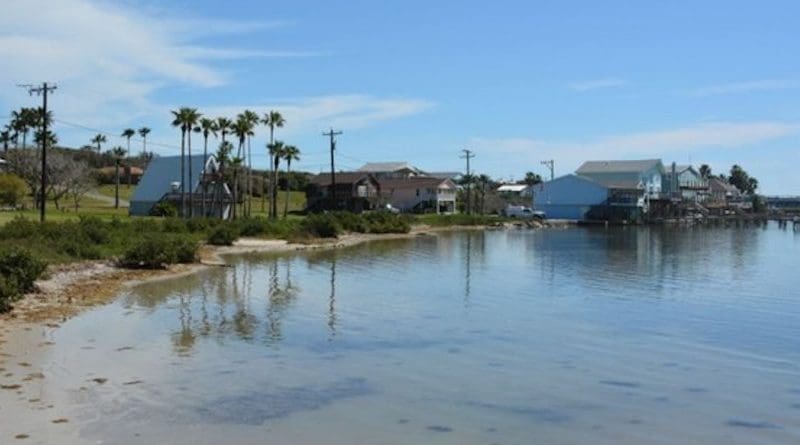Sensor Network To Monitor Climate Change Effects In Coastal Texas Town
A University of Texas at Arlington civil engineer is working with a Texas coastal town to develop a low-cost sensor network that will help the community monitor climate change effects.
Michelle Hummel, an assistant professor in UTA’s College of Engineering, received a $150,000 grant from the National Science Foundation to work with the city of Ingleside on the Bay, Texas. The city has seen environmental impacts on its community from higher tides, ship wakes and air and water pollution caused by industrial growth.
Coprincipal investigators on the project are:
- Yonghe Liu, associate professor in computer science and engineering;
- Karabi Bezboruah, associate professor of planning in the College of Architecture, Planning and Public Affairs (CAPPA);
- Oswald Jenewein, assistant professor of architecture in CAPPA; and
- Kathryn Masten, former resident of Ingleside on the Bay and president and CEO of Masten-Cain Consulting. Masten is an expert in community informatics, or the use of information and communication technologies in community development.
Citizens in Ingleside on the Bay, located near Corpus Christi, have expressed concern about climate change and its impact on the community because of the city’s exposed shoreline, as well as worries that growth in the oil industry could negatively impact air and water quality.
Hummel and her team will create a low-cost sensor network to monitor air and water quality and flooding potential, then transfer the data to an online dashboard. They will host a community meeting this fall to get input from residents about where air and water quality stations and flood monitoring sensors should be installed based on local knowledge of hazards and vulnerabilities.
State and federal agencies operate sensors in the region, but they are typically expensive and lack local-level coverage. The low-cost sensors Hummel will use will provide better coverage throughout the community to help detect street-level impacts and will be tested against existing research-grade sensors for validation.
In addition to sensor deployment and data collection, the research team will also evaluate the existing communication and information-sharing networks in the region to understand how local organizations engage in environmental policymaking and permitting processes. This could help to identify connections with other community groups or regulatory agencies that should be formed or strengthened to improve future advocacy efforts.
Ultimately, the research team aims to help the community collect, analyze and leverage environmental data more effectively so residents have more of a say in the activities going on around them.
“By bringing together physical and social scientists and working directly with local residents and community groups to codesign our research approach, we can better address the complex challenges facing Ingleside on the Bay and work toward more sustainable, community-driven solutions,” Hummel said.

